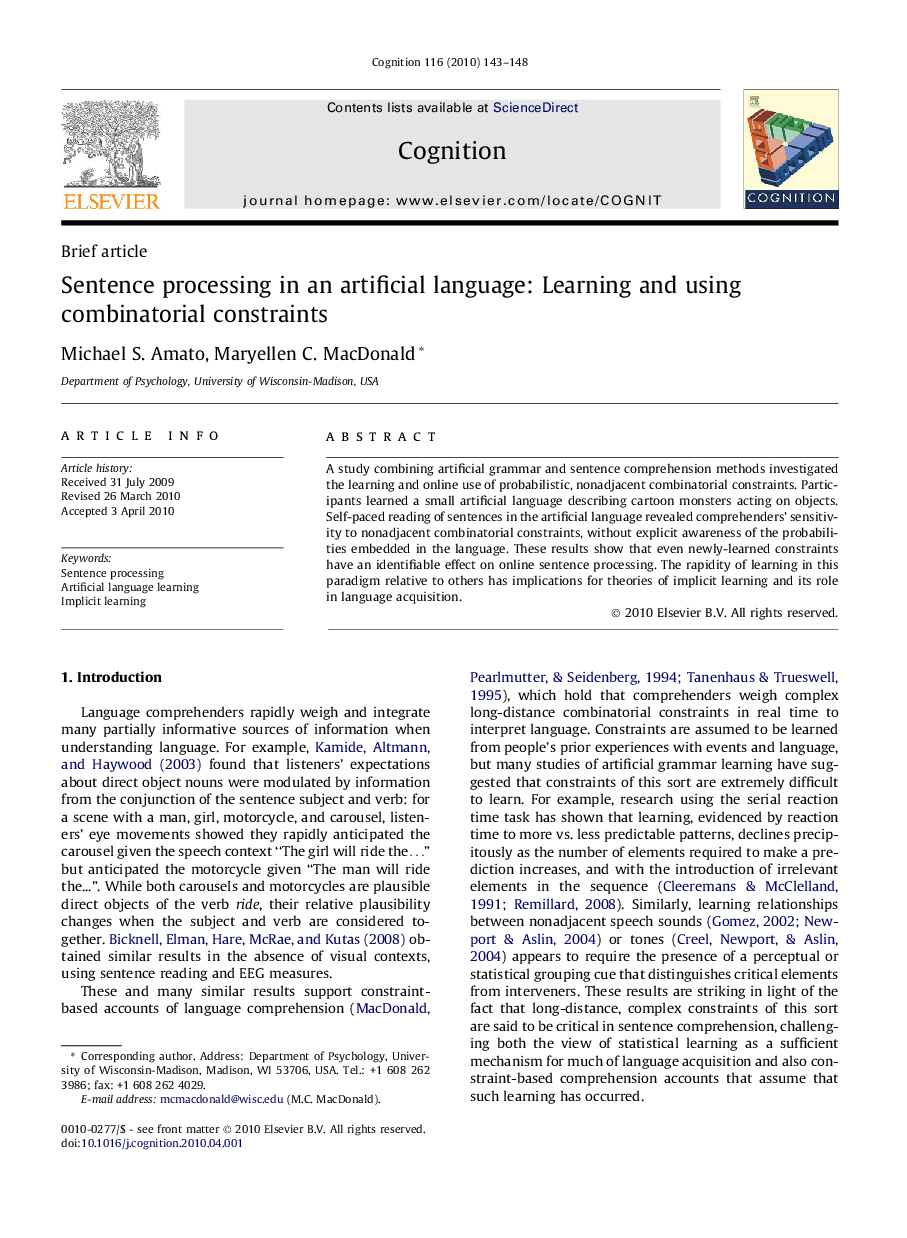| Article ID | Journal | Published Year | Pages | File Type |
|---|---|---|---|---|
| 926983 | Cognition | 2010 | 6 Pages |
Abstract
A study combining artificial grammar and sentence comprehension methods investigated the learning and online use of probabilistic, nonadjacent combinatorial constraints. Participants learned a small artificial language describing cartoon monsters acting on objects. Self-paced reading of sentences in the artificial language revealed comprehenders’ sensitivity to nonadjacent combinatorial constraints, without explicit awareness of the probabilities embedded in the language. These results show that even newly-learned constraints have an identifiable effect on online sentence processing. The rapidity of learning in this paradigm relative to others has implications for theories of implicit learning and its role in language acquisition.
Related Topics
Life Sciences
Neuroscience
Cognitive Neuroscience
Authors
Michael S. Amato, Maryellen C. MacDonald,
